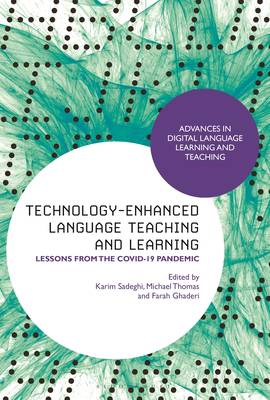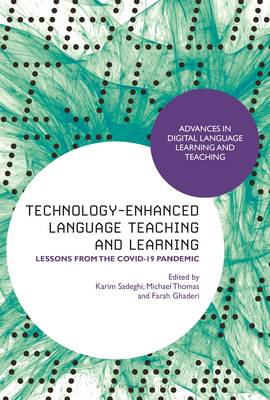
Bedankt voor het vertrouwen het afgelopen jaar! Om jou te bedanken bieden we GRATIS verzending (in België) aan op alles gedurende de hele maand januari.
- Afhalen na 1 uur in een winkel met voorraad
- In januari gratis thuislevering in België
- Ruim aanbod met 7 miljoen producten
Bedankt voor het vertrouwen het afgelopen jaar! Om jou te bedanken bieden we GRATIS verzending (in België) aan op alles gedurende de hele maand januari.
- Afhalen na 1 uur in een winkel met voorraad
- In januari gratis thuislevering in België
- Ruim aanbod met 7 miljoen producten
Zoeken
Technology-Enhanced Language Teaching and Learning
Lessons from the Covid-19 Pandemic
€ 220,45
+ 440 punten
Omschrijving
The Covid-19 pandemic has directly impacted the way teachers and learners worldwide teach and learn languages, forcing numerous educational activities in technologically-deprived contexts to stop altogether and those in technologically-rich environments to go online on an emergency basis. This volume provides a collection of theoretical and practical insights into the challenges and affordances faced globally during the pandemic and lessons learnt about the application of digital technologies for language teaching and learning. The chapters explore the vital role of technology in its various forms, including the internet, social media, CALL (Computer-Assisted Language Learning), MALL (Mobile Assisted Language Learning), TALL (Technology Assisted Language Learning) and TELL (Technology Enhanced Language Learning). Topics explored include the new avenues digital technology has opened up for language teachers and learners, options and challenges in applying technology in various contexts, and how the second language education industry could have been adversely impacted at the time of the pandemic without technological affordances. The contributions showcase studies from various geographical contexts, revealing how the global crisis was received and tackled differently in Australia, Hong Kong, Iran, Italy, Japan, New Zealand, the UAE, the UK and the USA.
Specificaties
Betrokkenen
- Uitgeverij:
Inhoud
- Aantal bladzijden:
- 280
- Taal:
- Engels
- Reeks:
Eigenschappen
- Productcode (EAN):
- 9781350271012
- Verschijningsdatum:
- 23/03/2023
- Uitvoering:
- Hardcover
- Formaat:
- Genaaid
- Afmetingen:
- 156 mm x 234 mm
- Gewicht:
- 562 g

Alleen bij Standaard Boekhandel
+ 440 punten op je klantenkaart van Standaard Boekhandel
Beoordelingen
We publiceren alleen reviews die voldoen aan de voorwaarden voor reviews. Bekijk onze voorwaarden voor reviews.








